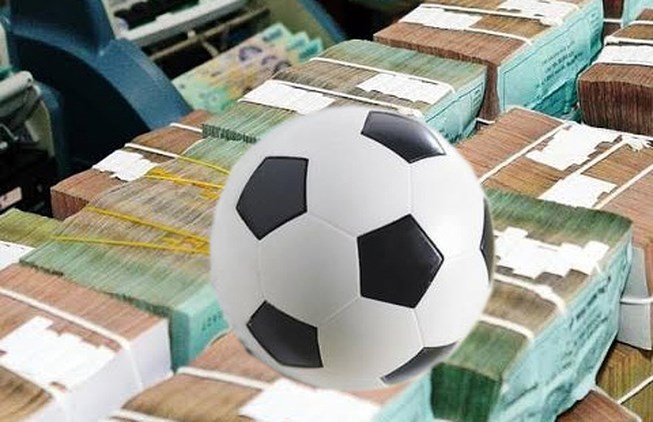Predicting extra time correctly in football matches involves analyzing various factors that may influence the likelihood of the match extending beyond regular time. Here's a guide to help you make more accurate predictions, Let's join the reputable bookmaker wintips
epic football predictionUnderstand the Context: Consider the context of the match, including the tournament format and stage of the competition. Cup competitions often have knockout rounds where matches can go to extra time if the scores are level at the end of regular time. Understand the rules and regulations governing extra time in the specific tournament.
Research Team Performances: Research the teams involved in the match and their recent performances in similar situations. Look at their track record in matches that have gone to extra time, including their results, goal-scoring patterns, and ability to handle pressure situations.
Assess Team Form: Evaluate the current form of each team, including their recent results, goal-scoring form, defensive stability, and any notable trends or patterns. Consider factors such as injuries, suspensions, and lineup changes that may affect team performance in extra time.
Analyze Playing Styles: Analyze the playing styles of the teams and how they may influence the likelihood of the match going to extra time. Teams that prioritize defensive solidity and cautious play may be more likely to take matches to extra time, while attacking-minded teams may seek to finish games in regular time.
Consider Head-to-Head Records: Review the head-to-head records between the two teams and how often their matches have gone to extra time in the past. Look for patterns or trends that may indicate whether the teams are evenly matched or if one team has historically been dominant.
Evaluate Match Dynamics: Assess the match dynamics and how they may influence the likelihood of extra time. Consider factors such as the scoreline, time remaining, momentum shifts, and any tactical adjustments made by the teams during the match.
Factor in Tournament Fatigue: Take into account the potential impact of tournament fatigue on player performance, especially in matches played late in the tournament or after a congested fixture schedule. Fatigue can affect decision-making, concentration, and physical conditioning, potentially increasing the likelihood of matches going to extra time.
Assess In-Game Situational Factors: Monitor in-game situational factors that may influence the likelihood of extra time, such as late goals, red cards, injuries, or changes in momentum. These factors can have a significant impact on the flow of the match and increase the chances of extended play.
Consider Match Venue and Conditions: Evaluate the match venue and prevailing conditions, including weather, pitch conditions, and crowd support. These factors can affect player performance and may influence the outcome of the match, including the likelihood of extra time. You can refer to the reputable
over 2.5 dropping odds at bookmaker wintips
Utilize Statistical Analysis: Use statistical analysis and predictive models to assess the probability of matches going to extra time based on historical data and performance metrics. Look for statistical indicators that correlate with drawn matches or matches with late goals.
Monitor Live Betting Opportunities: Stay updated on the match live if possible and consider taking advantage of live betting opportunities to adjust your predictions based on in-game developments. Live betting allows you to react to changes in match dynamics and may offer valuable insights into the likelihood of extra time.
Review Past Results and Learn: After the match, review the results and outcomes of your predictions to identify strengths and weaknesses in your approach. Learn from past results and experiences to refine your strategy and improve your ability to predict extra time correctly in future matches.
Assess Tournament History: Evaluate the historical trends and patterns of the tournament or competition in which the match is taking place. Some tournaments may have a higher frequency of matches going to extra time, while others may see fewer instances due to the format or level of competition. Consider how past tournaments have unfolded and whether there are any notable trends that could inform your prediction.
Factor in Team Mentality and Experience: Take into account the mentality and experience of the teams when it comes to playing in high-pressure situations such as extra time. Teams with a history of success in close matches or knockout rounds may be more mentally resilient and better equipped to handle the pressure of extra time, potentially increasing the likelihood of the match extending beyond regular time.
Assess Referee Tendencies: Consider the tendencies and officiating style of the match referee, as this can influence the flow of the game and the likelihood of stoppage time being added. Some referees may be more lenient or strict in their enforcement of the rules, which could impact the number of stoppages and ultimately the chances of extra time. Join now at the reputable
football prediction site with 100 accuracy of bookmaker wintips
Evaluate Recent Form in Cup Competitions: Pay attention to each team's recent performances in cup competitions or knockout rounds leading up to the match. Teams that have consistently advanced through close matches or won on penalties may have a greater propensity for matches to go to extra time, reflecting their ability to compete under pressure.
Consider Tactical Adjustments: Assess the potential for tactical adjustments by the teams during the match that could influence the likelihood of extra time. Teams trailing late in the match may adopt more aggressive tactics to push for an equalizing goal, while leading teams may prioritize defensive stability to protect their advantage, potentially leading to a drawn outcome.
By considering these additional factors and conducting comprehensive analysis, you can further enhance your ability to predict whether a football match will go to extra time accurately. Remember that predicting extra time involves inherent uncertainty, so it's essential to approach it with a methodical and analytical mindset while acknowledging the unpredictability of football outcomes.


